How Do Airplanes Fly? What is Aerodynamics, and How Does It Apply
Do you wonder how airplanes fly?
In this post i am going to explain it short and simple yet accurate to the best of my knowledge.
Aerodynamics is the science of air movement around objects that move and stand still. This study explains how airplanes fly. Air movement and its effects are very important to those who design moving vehicles like airplanes and automobiles, and to the men who plan buildings and bridges.
Principles
Principles of Aerodynamics
There are three principles that form the basis of aerodynamics. First, scientists have learned that moving air will push up against flat surfaces held at an angle to the wind; for example, windmills and sailboats. Secondly, the force of air under a moving object pushes it upward. Finally, the surfaces of an object will move toward a rapidly-moving air stream above it.
The four forces in level flight
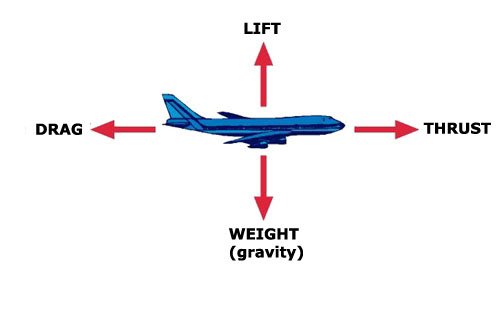
The lifting force of the airplane wing is produced in two ways. One way is the direct pressure of the air against the tilted wing.
Bernoulli's Principle
Much more important is the lift generated through the effect of Bernoulli's principle. This principle, discovered by the Swiss mathematician, Daniel Bernoulli, states that a gas, like air, passing rapidly over a surface exerts less pressure against the surface than a gas moving more slowly. Aircraft wings are designed to take advantage of this principle by having the top surface curved. Thus, the air moving across the top has farther to travel than that below the wing resulting in a more rapid flow. The air pressure on the top of the wing surface is then less than that exerted by the slower moving air across the bottom, thereby creating lift.*
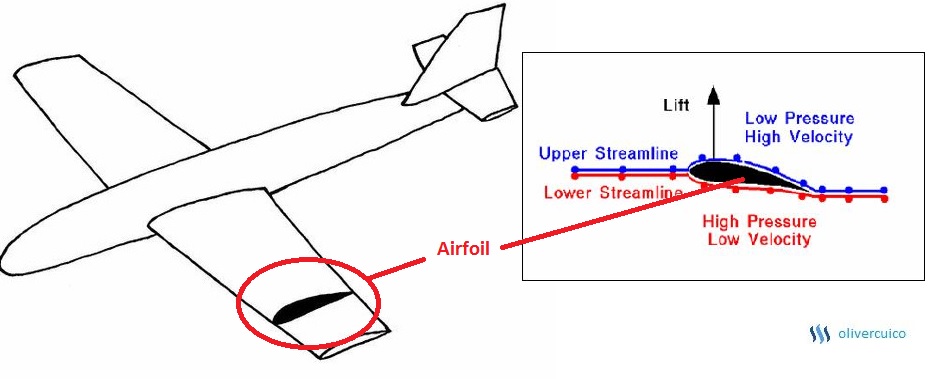
Differences in air pressure creates lift
Aeronautical engineers must design aircraft so that the lifting force of the wings must overcome the force of gravity. The forward thrust force provided by the propeller or jet engine must also overcome the drag force or the resistance of the air to the aircraft movement.
These are examples of aircraft engines that produce forward thrust force.
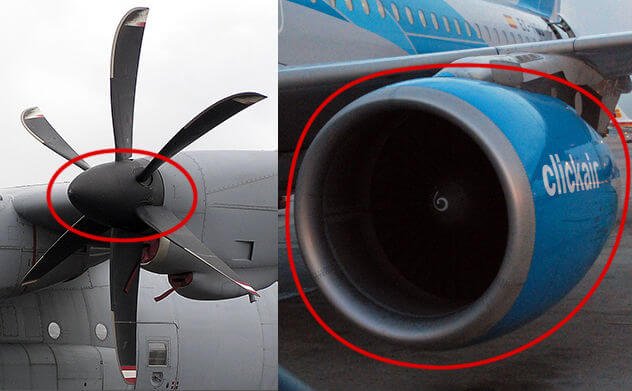
On the left is a propeller-type engine and on the right is a gas turbine engine.
Drag is reduced by giving the aircraft a streamlined shape.

Streamlining increases speed.
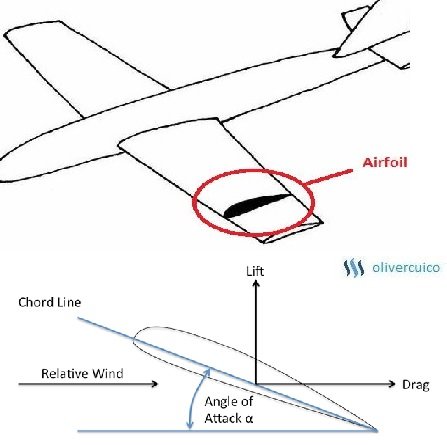
A knowledge of aerodynamics is important to designers of buildings and bridges. wind loads on these structures must be carefully planned before they are erected, so that they offer the least resistance to the winds for greater stability.
This is an example of applied aerodynamics in a building
Through serious study of aerodynamics began during World wars I and II when great numbers of air movement date back to Leonardo Da Vinci in the sixteenth century. From his diagrams of birds in flight, he designed a flying machine and even proposed that man could fly with mechanical bird-like wings.
Leonardo Da Vinci's 1490 flying machine
In the 1880's Otto Lilienthal experimented with air movement in his glider study, and made the first successful glider flight. Samuel Langley in 1891 published the first scientific papers on aerodynamics, and he even flew an airplane model. In 1903 the Wright Brothers were successful in getting a powered airplane to fly as i have tackled in my previous article.
Much of today's aerodynamic research is devoted to the problems of supersonic (faster than sound) and high-altitude flight. High-speed flight has created many new problems. Air friction and compression cause heat which weakens metals; great air pressures many times the force of a hurricane are encountered and the air flowing around the aircraft changes its characteristics.
This is a sample of a supersonic concept jet
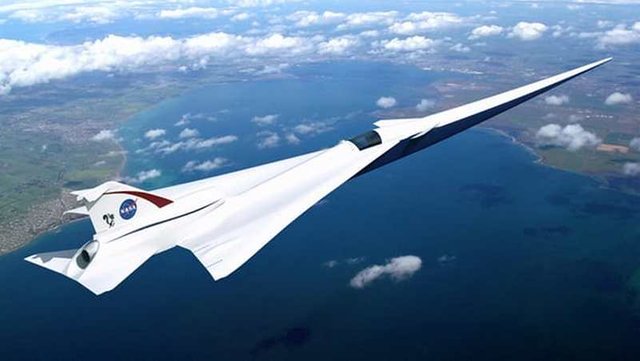
img source
This is Lockheed Martin's X-plane design, as you can see it has a very intelligent aerodynamic design for a quieter supersonic jet.
As missiles and space craft are developed, new shapes must be designed to cope with the special problems of re-entering the atmosphere from space.
Research in slow speed flight aerodynamics is also being undertaken to develop aircraft which are able to land, take-off and remain airborne at very slow speeds.
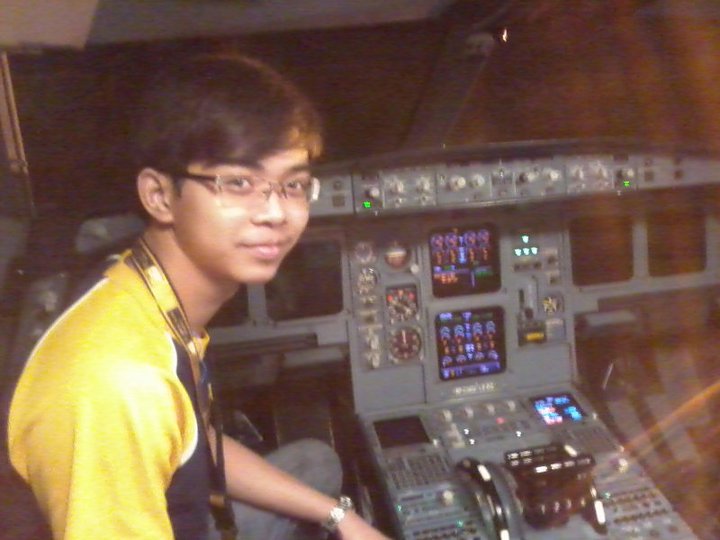
Me inside the cockpit of the Philippine Airlines' Airbus A340-300 that flies with maximum of 295 passengers in a typical three-class cabin layout over 6,700 nautical miles (12,400 km)
Follow me for more of my posts and my future blogs.
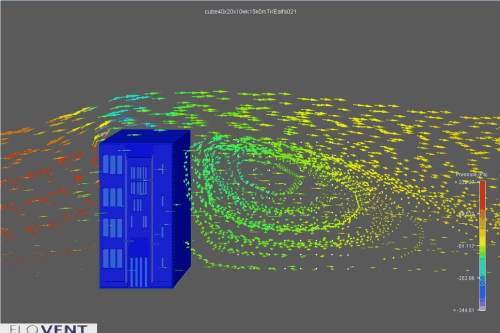
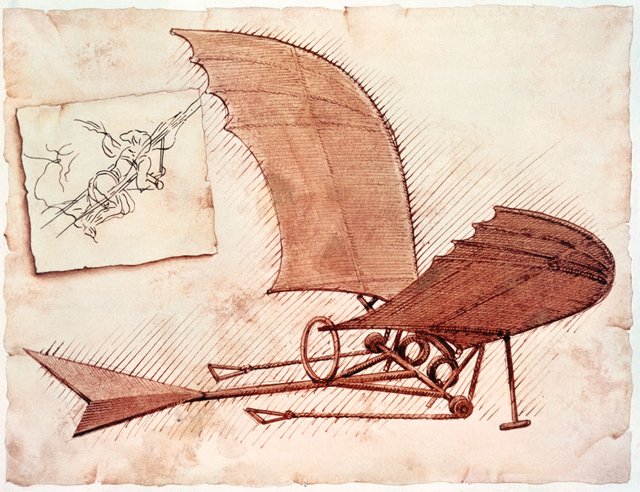
Your post is educative. You did justice to it and made it sound interesting to know aerodynamics.
Thank you @turpsy! Yeah that's the goal of my writing to simplify the subject by selecting just the most important words and terms yet efficient to not let the readers fall asleep. Studying aerodynamics in a library or school will take a very long time. Thanks for the technology. Life is good!
FBABOX,(https://www.fbabox.com) a leader in the e-commerce logistics field, offers comprehensive 'one-stop logistics solutions' across Europe, providing international trading companies and cross-border e-commerce sellers with reliable, safe, and competitively priced services. With 14 years of industry experience, FBABOX ensures efficient global and domestic shipping practices, backed by a vast network of over 20 branch offices worldwide.[url]http://www.fbabox.com/[/url]
super cool ! i always forget Bernoulli's principle, thanks for reminding me, outstanding post !
@clumsysilverdad r you an aviator? Yeah! me, i always forget many things so i wrote them here haha! Thank you for reading my post.
Thanks @olivercuico! You've made me a little smarter now 😉
Haha yeah @denisechips as a traveler we must familiarize the theory of flight. Because we don't know the 0.001% chances the pilot of your plane and his co-pilot will be on accident and let the passenger like you do the honors just like the "Snakes on a plane" movie. Just kidding haha. Thanks for reading my post. :-)
Haha! Just the trailer for that movie was enough for me! No thank you. Worst nightmare, lol 😄
Nose bleed! Haha! I have 3 friends who are pilots with PAL. Are you associated with PAL by any chance? Maybe you know my friends. :)
Haha i don't think so, but PAL is Lufthansa's main customer, and our work place is distant to the airports. Maybe i'm just familiar to their faces. I only go to airports back then just to tow their airplanes to our base or do the servicing. Thanks for reading sa susunod magtatagalog nalang po ako hehehe
I mean nose bleed for the aerodynamics shit not for speaking English. lol!
Great post once again Oliver. That picture of you, you're so young haha I love it! Keep up the awesome content, you're doing great!
Ha ha Thanks @sasha.shade for the constant support! Ur the man! ♥
I did try to figure this out in my head on a number of ocassions. Aerodynamics of a helicopter is easier to figure out. For an airplane tho, considering its size and no overhead mill, I wonder how it generates enough upward force to leave the ground. Thanks for sharing. You can use #steemiteducation. If you use #philippines, you expose your post to being seen. That is a more generic tag. @steemiteducation are loving these types of posts. @giantbear
Yeah @surpassinggoogle the superb aircraft engines are one of the most amazing creations of humans! Imagine an Airbus A380 with a total weight of almost 600 tonnes like a building, can be pulled forward easily and safely by its 4 turbofan engines!
The tags are noted. Thank you for taking your time to look at my posts! I appreciate! :-)
Excellent post @olivercuico hoping to learn more of this :)
Awesomely educative.
Your reward: I upvote, follow and resteem.
Thank you very much @yeshir! I'll be following you too!
@olivercuico got you a $1.58 @minnowbooster upgoat, nice! (Image: pixabay.com)
Want a boost? Click here to read more!
This post was resteemed by @resteembot!
Good Luck!
Learn more about the @resteembot project in the introduction post.